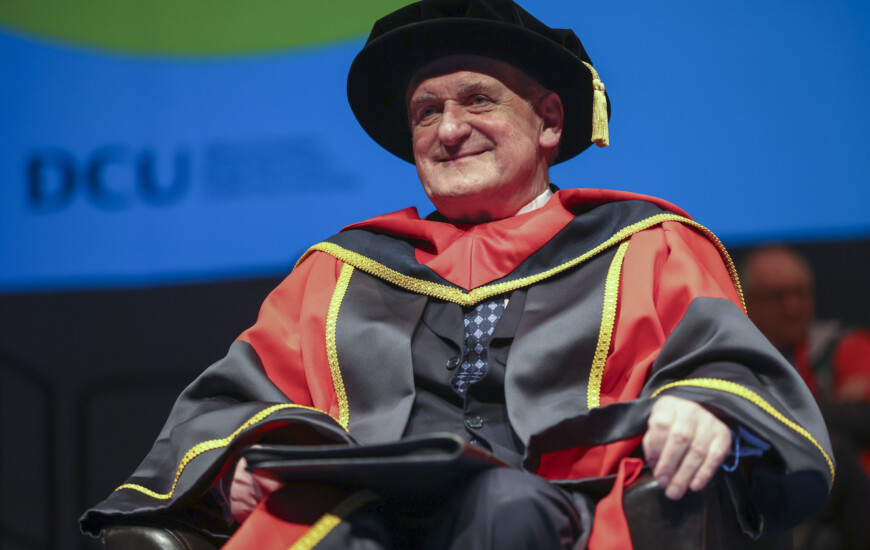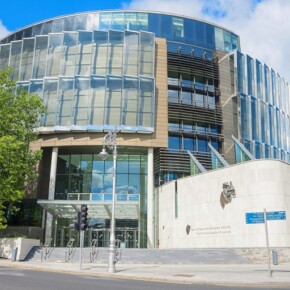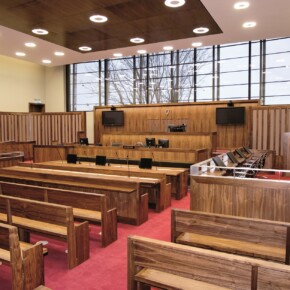Fianna Fáil looking to gamble on Bertie Ahern comeback
Mike Finnerty 16 Apr 2025
When the books are written about the Irish general election of November 2024, the big narrative will be that the incumbent government managed to hang on.
In a political climate where governments from London, Berlin, Tokyo and Cape Town all suffered at the polls, it was Fianna Fáil and Fine Gael that held on.
Fianna Fáil saw its best election result since 2007, taking home 49 seats and having first crack at forming a government.
That government was then formed in January, with Micheál Martin backpedalling on past promises to never go into government with Fine Gael or be involved in a government involving Michael Lowry as he got his second bite of the apple as Taoiseach.
In 2016, Martin said that “no party” should involve Michael Lowry in a coalition, saying ”those findings (the Moriatry tribunal) were very strong, they were unequivocal and we cannot ignore them – indeed no political party can ignore them.”
In 2019, Martin described Fine Gael as “out of touch” and “arrogant.”
Earlier this year, Martin went into government with the two entities he previously strongly criticised.
The most recent Red C Poll saw Fianna Fáil take a commanding lead over both Sinn Féin and Fine Gael in the polls, while the controversy over missed housing targets led to former Minister for Housing Darragh O’Brien claiming that the scandal had “no effect” on public trust in government.
It is in this backdrop that Fianna Fáil feel ready to test just how much trust they really have with the public; picking Bertie Ahern as their candidate for the Áras.
Fianna Fáil going from a generational electoral rout in 2011 to returning to the Taoiseach’s office in 2020 was a sign that a significant chunk of the electorate forgave Fianna Fáil for their role in the 2008 economic crash.
With all signs pointing towards the former Taoiseach being Fianna Fáil’s candidate for the Áras it poses the question; is the party gambling on rehbiliating Bertie Ahern’s image, and are they willing to trot him in front of the electorate during a presidential campaign which will likely be taking place amid the backdrop of a major global recession?
For his part, the former Taoiseach has not exactly been subtle about wanting to run for the presidency.
In January, Ahern told a Trinity crowd that his appearing on the ballot is “up on the air” but has also made the media rounds in recent weeks, weighing in on everything from election results to Trump’s tariffs.
To anyone who is plugged in, it’s a sure sign that the man who ran the country from 1997 until 2008 wants another go at the top level.
Fianna Fáil running Ahern would be a sign of just how much the Irish electorate has forgiven them.
And in truth, very little would stop Ahern from clinching the Fianna Fáil nomination if he went on the grounds of no one having more experience or gravitas.
Ahern left office in May 2008, a month away from hitting the 11-year mark as Taoiseach after findings of the Mahon Tribunal placed him in the crosshairs.
When the full report was published in March 2012, the findings said they “rejected” Ahern’s evidence and Ahern promptly resigned from the party.
Ahern rejoined the party in 2023, with media analysis at that time painting him as one of the architects of the Good Friday Agreement and a sign of a kinder, gentler brand of politics, the one that posed alongside Bill Clinton and Tony Blair on the world stage.
The fallout from the Mahon Tribunal and the subsequent economic crash created a new era of Irish politics, one where Sinn Féin can be the second-largest party in the Dáil and an avowed leftist party like People Before Profit can secure nearly 50,000 first preferences in a general election.
Ahern returning to the public fray after nearly 20 years out would be a gamble; Fianna Fáil would be banking on the public remembering the Bertie Ahern who appeared on RTÉ’s Premier League highlights program discussing his love of Manchester United and being the guy who ran the country when the boom was getting boomier.
Fianna Fáil want people to remember the bashful Bertie Ahern, the Taoiseach when holy communions and confirmations resembled scenes from Narcos with €500 bank notes, and not the Taoiseach who made sure people would be lucky to see a €50 euro note.
It’s very possible they remember the same Bertie Ahern that appeared in a cupboard in a TV ad at the height of the economic crash he caused in 2010.
In Dublin Central, Ahern’s old haunt, Fianna Fáil has failed to get a TD elected since Ahern stepped down at the 2011 general election.
The last three general elections have shown a clear swing towards Mary Lou McDonald in the personal popularity stakes and Paschal Donohoe among voters who check stock prices the same way everyone else checks fantasy football.
Global politics has shown that comeback stories for controversial figures are catnip for the electorate and the media; the punk rock premiership of Boris Johnson going down in flames and Donald Trump’s re-election are proof of that.
An Ahern comeback will require a degree of self-awareness that the media hasn’t been keen to show recently; yes, an Ahern presidency bid would be great for business, but would it really be worth bringing back the noughties?
In recent weeks, Mairead McGuinness has emerged as the favourite for the Fine Gael candidacy as the party feels that the controversy stemming from Frances Fitzgerald’s time as Tánaiste is too much of a gift for the opposition and McGuinness would, in theory, have a free hand over the rural vote.
Outside of Dublin, there is a feeling within Fine Gael rank and file that the party is too Dublin-centric and that Fianna Fáil are in the Taoiseach’s office right now because their rural machine was much better run.
Putting McGuinness on the ballot would go some way to repairing that image.
In March, it was announced that Fianna Fáil and Fine Gael would each separately run a candidate in the election instead of teaming up to back a candidate.
McGuinness’ chops as a seasoned EU politician and her background in farming is highly appealing to Fine Gael as they look to pick a candidate; should they get inklings that their coalition partners are running someone from inner city Dublin, it would make McGuinness’ participation on the ballot a slam dunk.
Signs have pointed towards Frances Black being the candidate of the left (the Irish Times described her recent appearance on the Late Late Show as a “soft launch” of her candidacy), who is also a Dub.
With their main rivals being Northsiders and Southsiders, Fine Gael running a candidate who traversed the Midlands and Connacht during her time as an MEP makes political sense.
The term “recession indicator” has taken hold among young people since the start of 2025; Ahern appearing on the ballot may literally invoke that among the electorate this October.











